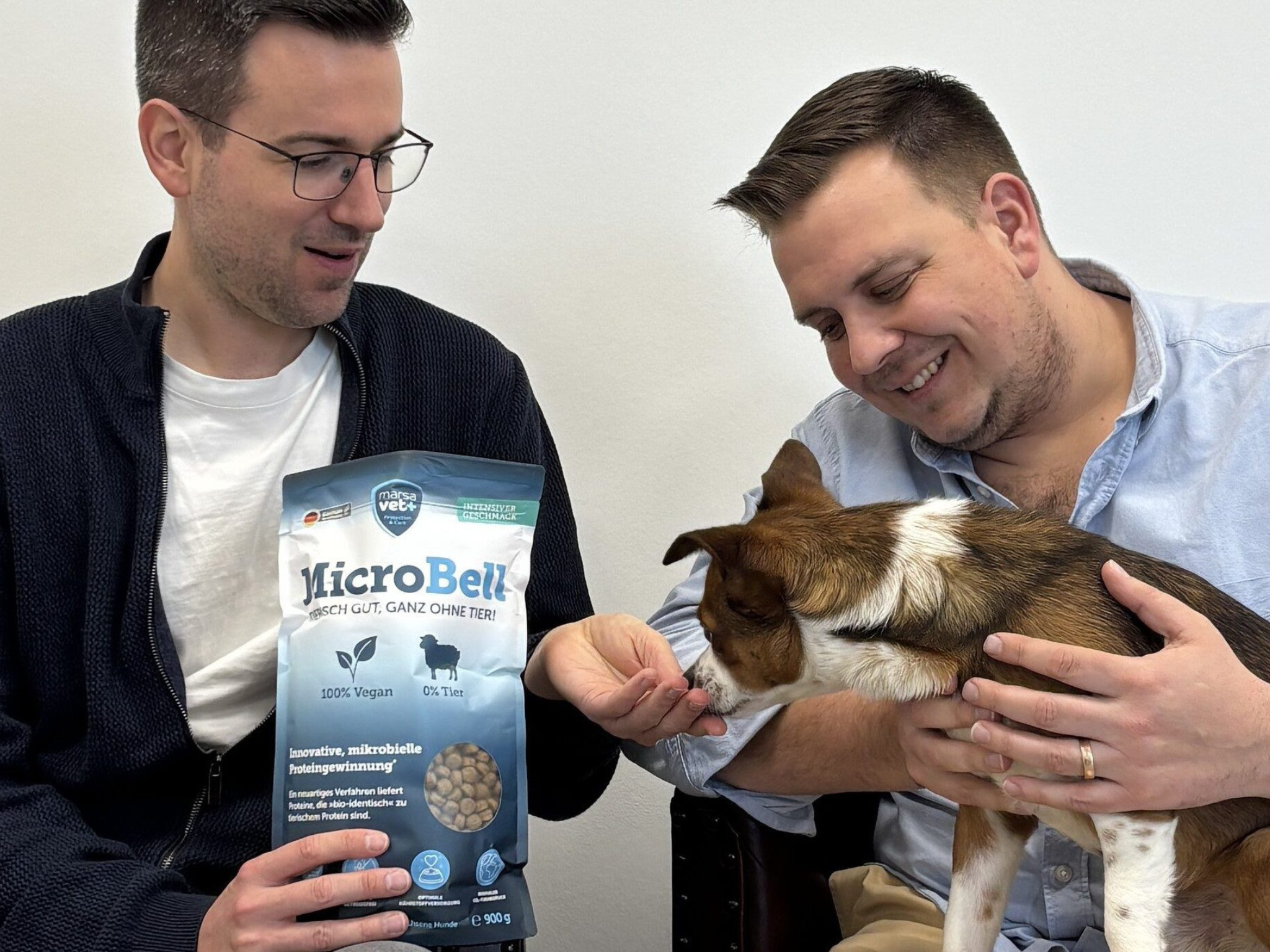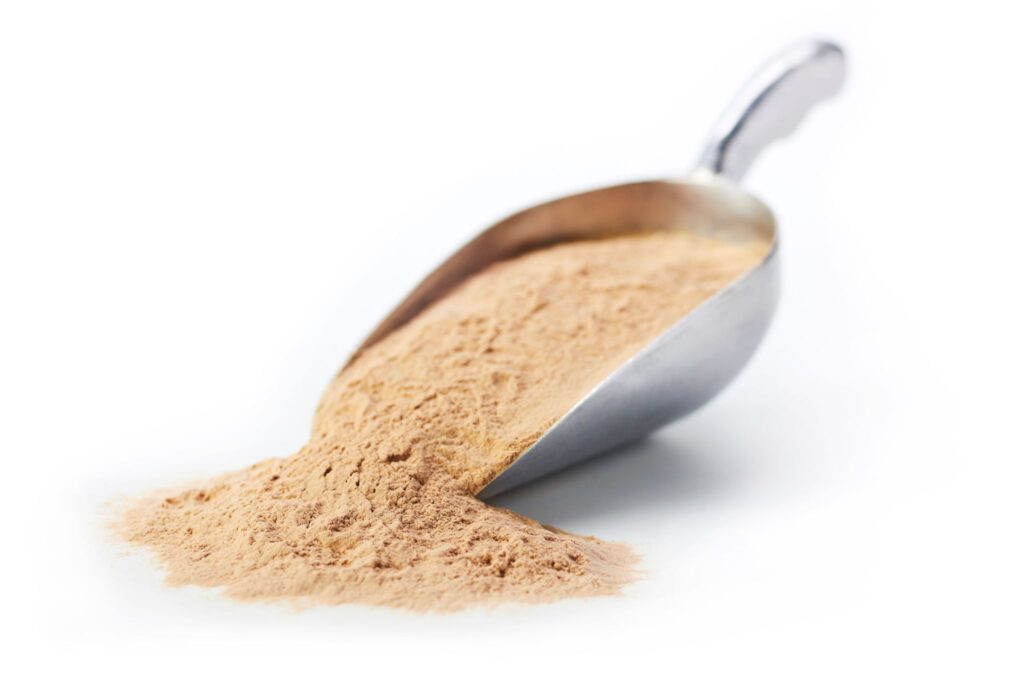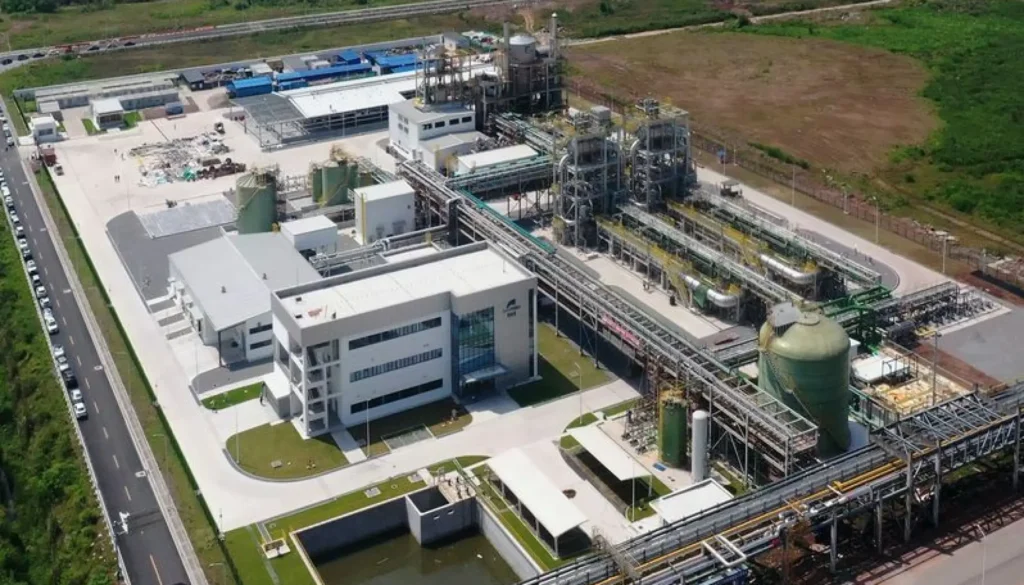
German pet food maker Marsapet has rolled out a kibble product for dogs using Calysta’s fermentation-derived FeedKind protein.
Would you feed your dog carbon and microbes?
If you’re in Europe, you now can, thanks to a partnership between Californian sustainable protein producer Calysta and German pet food company Marsapet.
The latter has launched MicroBell, a dry kibble made from Calysta’s FeedKind protein, under the Marsavet line. The protein is derived from a gas fermentation process where methane is used as a carbon and energy source for microbes.
The grain-free dog food product combines the fermented protein with sweet potatoes, peas, and potatoes, and is well-suited to canines with allergies or sensitive stomachs.
“This project is a labour of love, and we have poured our hearts into bringing this groundbreaking product to market,” said Marsapet CEO Marcel Hoffmann. “With MicroBell, we are setting new standards in sustainable, high-quality pet food, offering pet owners a nutritious, innovative alternative without compromising on quality or taste.”
FeedKind offers nutritional and environmental benefits

Unlike most pet food proteins, Calysta’s FeedKind doesn’t use any animal- or plant-based ingredients. To make the single-cell protein, it combines oxygen, nitrogen, carbon and energy into a proprietary fermentation tank, which are then consumed by naturally occurring microorganisms.
Once the microbes convert the gases into protein, it is separated from the liquid, and the water and nutrients are returned to the fermenter. The protein is then dried and packaged in various formats, based on the application and customer specifications – it can be used as fish or livestock feed, or in dog and cat food.
As a fermented protein, FeedKind has been proven to promote a healthy gut in animals, facilitating better nutrient absorption and improved feed conversion and growth rates. The non-GMO ingredient is highly nutrient-dense, with up to 71% crude protein, 9% crude fat, and a balanced amino acid profile. It can be used in both wet or dry food, and has been certified vegan by V-Label.
Beyond this, FeedKind presents several sustainability advantages. Calysta’s patented process uses no agricultural land and “almost no water”, as the company describes it. This makes it an ideal alternative to fishmeal and soy protein, which are the primary protein sources in feed products today.
One FeedKind plant can produce up to 100,000 tonnes of protein per year on just 10 hectares of developed land – in comparison, the same amount of soy protein would require 250 million hectares of arable land. Likewise, FeedKind would save nearly nine million cubic metres of water – equivalent to 3,600 Olympic-sized swimming pools – if used in place of soy protein.
The company is also building a circular production system. During the fermentation process, the microbes exhale CO2. By capturing that, it uses renewable energy to power a methanation process that converts the waste back into usable carbon and energy.
US pet food market in sight for Calysta

Calysta’s first facility is located in Chongqing, China, which produces 20,000 tonnes of FeedKind Aqua per year. It’s operated under Calysseo, the company’s joint venture with animal nutrition player Adisseo. In addition, it has an R&D lab in Teesside, UK, and a warehouse in Poland.
The company, which has raised around $221M to date, is currently working on a large financing round to fund a second facility dedicated to its FeedKind Pet ingredient. To prove the market’s viability, it shipped some of its pet protein to Europe last summer, months after debuting the ingredient at trade fair Interzoo, as part of German startup Dr. Clauder’s air-dried Trainee dog treats.
The MicroBell launch in collaboration with Marsapet will be “the first of many pet foods launched to feature FeedKind Pet protein”, according to Herman Sloot, VP of global sales at Calysta.
“Calysta and its partners have the largest production capacity of any alternative protein in the world, and it’s here now,” he said. “Most importantly, we are producing an ingredient with industry-leading nutrition, palatability, and postbiotic benefits – and all without using arable land. It’s a game-changer for the pet food sector.”
Calysta has already received regulatory approval in the EU, UK, Canada and other countries for its pet food ingredient, and it’s now gunning for the US, hoping to achieve self-determined Generally Recognized as Safe (GRAS) status for FeedKind Pet later this year.
It isn’t the only company working on fermented proteins for pet food – fellow German startups VegDog and MicroHarvest released a microbial protein treat for dogs last year, while American player Bond Pet Food is making pet food via precision fermentation.
The overall alternative pet food sector is heating up as owners become more climate-conscious with their furry friend’s diets – just last month, London-based Meatly and The Pack launched the world’s first dog food with cultivated meat for sale, in a limited-edition run at UK retailer Pets At Home.
The post Dog Food Made from Fermented Gas Protein Lands on European Shelves appeared first on Green Queen.
This post was originally published on Green Queen.